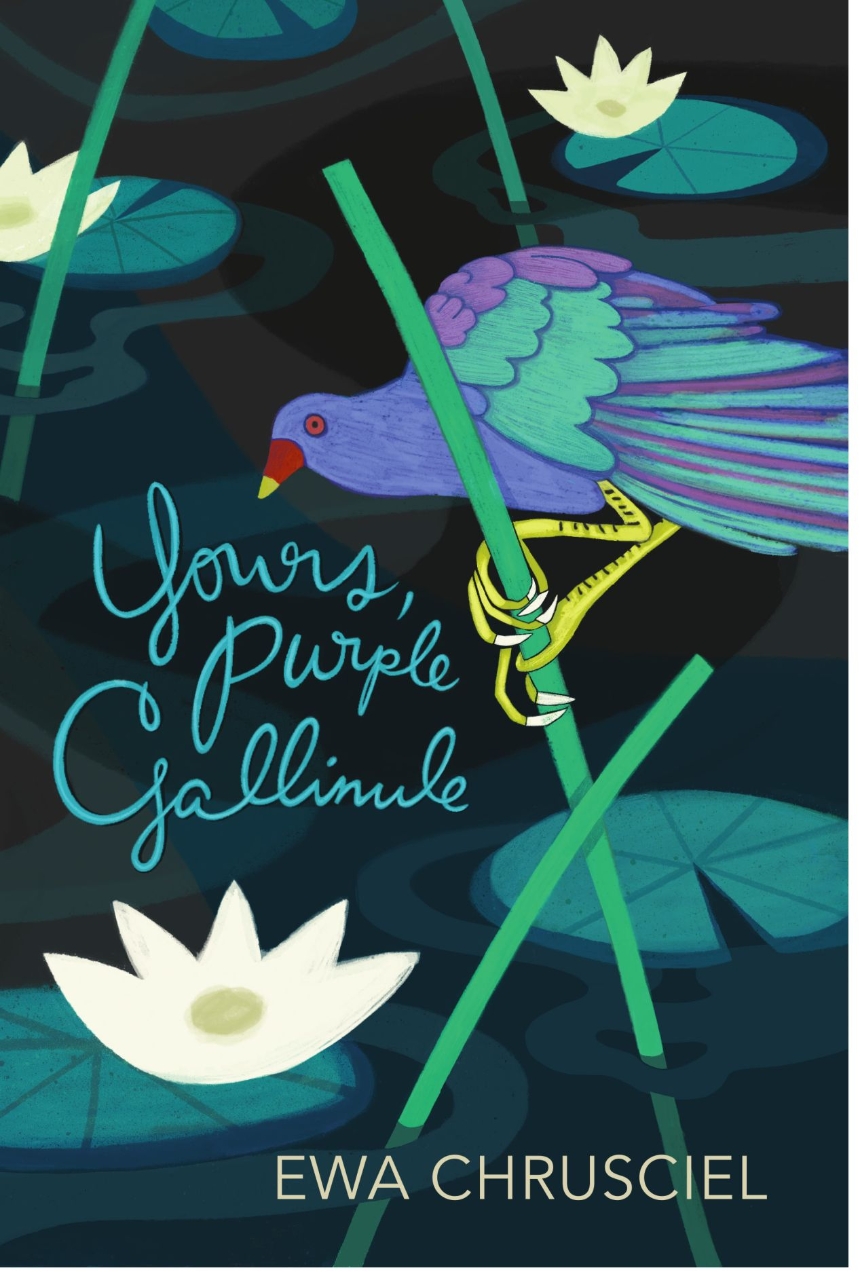Distributed for Omnidawn Publishing, Inc.
Yours, Purple Gallinule
Lyrical satire that imagines mental illnesses as various bird species.
Ewa Chrusciel’s fourth book in English, Yours, Purple Gallinule, playfully explores health and illness as they are culturally constructed. Using research into clinical understandings of mental afflictions and their treatments through history, Chrusciel maps various diagnostics onto an array of bird species. A lyrical satire, the book is a reflection on a society that tends to over-diagnose, misdiagnose, and over-medicate. These poems pose questions about what it means to be unique and to accept pain and suffering as a fact of life.
On the pages of Yours, Purple Gallinule, we encounter birds, a poet, and a psychiatrist. The psychiatrist undergoes a series of conversions as she realizes that the point is not to classify thoughtlessly, but to “make music instead”—to dwell in astonishment. Birds evade the anthropomorphizing intentions of the human protagonists as the psychiatrist and the poet eventually become one. The anthropomorphizing goes in reverse, and the human being becomes more avian. Like the dove in the biblical Noah’s ark story, the bird proclaims a new covenant, with a twig in its beak and a message: “We are all mad; some more than others, but no one is spared the affliction. And the madder we are, the more sacred.”
Ewa Chrusciel’s fourth book in English, Yours, Purple Gallinule, playfully explores health and illness as they are culturally constructed. Using research into clinical understandings of mental afflictions and their treatments through history, Chrusciel maps various diagnostics onto an array of bird species. A lyrical satire, the book is a reflection on a society that tends to over-diagnose, misdiagnose, and over-medicate. These poems pose questions about what it means to be unique and to accept pain and suffering as a fact of life.
On the pages of Yours, Purple Gallinule, we encounter birds, a poet, and a psychiatrist. The psychiatrist undergoes a series of conversions as she realizes that the point is not to classify thoughtlessly, but to “make music instead”—to dwell in astonishment. Birds evade the anthropomorphizing intentions of the human protagonists as the psychiatrist and the poet eventually become one. The anthropomorphizing goes in reverse, and the human being becomes more avian. Like the dove in the biblical Noah’s ark story, the bird proclaims a new covenant, with a twig in its beak and a message: “We are all mad; some more than others, but no one is spared the affliction. And the madder we are, the more sacred.”

